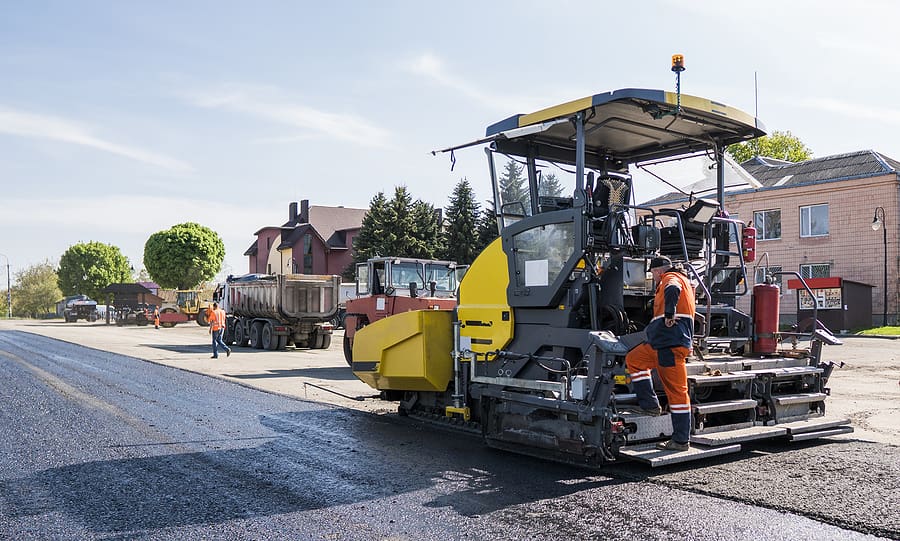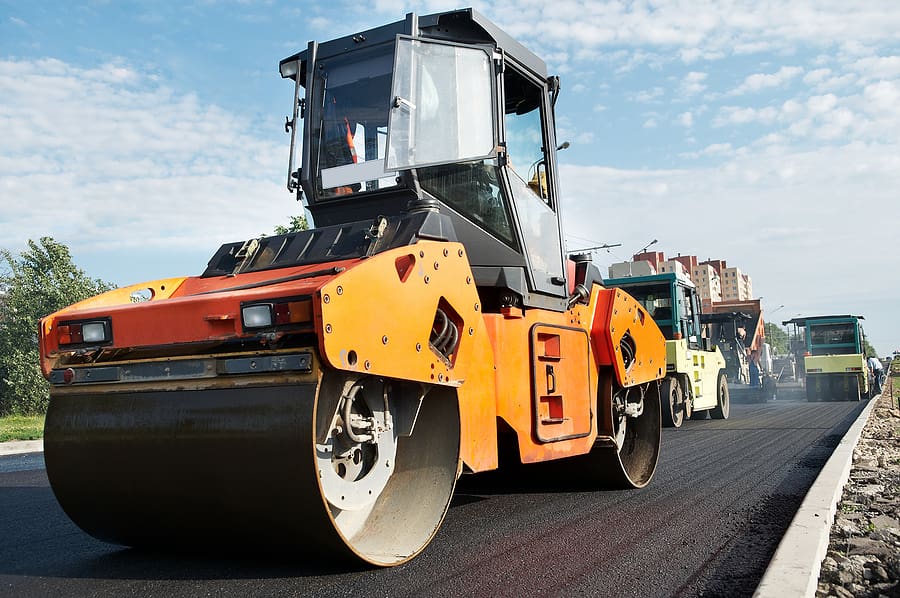When it comes to paving projects, selecting the right rubber tracks for asphalt pavers is crucial for ensuring smooth operation, durability, and long-term performance. Paving machinery operates under extreme conditions, including high heat, heavy weight loads, and continuous wear from abrasive surfaces. To optimize efficiency and reduce downtime, it’s essential to invest in paver tracks that are designed specifically for asphalt applications.
The Importance of Quality Rubber Tracks for Asphalt Pavers

Asphalt paving sites demand tracks that can withstand heat conditions, support heavy weight loading, and maintain optimal traction. Unlike general-use rubber tracks, paver tracks must be engineered to handle:
- Extreme heat resistance – The asphalt surface can reach temperatures of 300°F (149°C) or higher, which can degrade standard rubber tracks.
- Heavy machine weight – Asphalt pavers are large and require tracks that distribute weight evenly to prevent damage to the paving site.
- Continuous movement – Since pavers move slowly and consistently during operation, tracks must resist excessive wear while maintaining traction.
- Oil and chemical exposure – Asphalt contains oils and other chemicals that can break down lower-quality rubber compounds over time.
Key Features to Look for in Asphalt Paver Tracks
Choosing the right rubber tracks for asphalt pavers means looking for the following essential features:
1. High Heat Resistance
The best rubber tracks for asphalt use specialized heat-resistant rubber compounds that prevent premature wear and cracking. Look for tracks with reinforced rubber blends that can withstand high heat environments without losing flexibility or strength.
2. Heavy-Duty Construction for Load Support
Paving equipment is heavy, and the tracks must support heavy weight loading without excessive stretching or deformation. Tracks reinforced with steel cables or kevlar belting provide added strength, ensuring stability and longevity under demanding conditions.
3. Optimized Traction & Surface Protection
Since pavers operate on freshly laid asphalt, tracks must offer superior traction while also minimizing surface damage. High-quality paver tracks feature tread patterns designed for smooth rolling without leaving deep imprints or disrupting the integrity of the pavement.
4. Oil & Chemical Resistance
The rubber compounds used in paver tracks should be resistant to oils, fuels, and chemicals found in asphalt mixtures. This helps prevent track degradation and extends the lifespan of the equipment.
5. Proper Fit & Compatibility
Each asphalt paver requires specific track sizes and configurations. Selecting rubber tracks designed specifically for your paver model ensures better performance, reduced wear on undercarriage components, and improved operational efficiency.
Choosing the Right Rubber Tracks Supplier

When investing in rubber tracks for asphalt pavers, it’s important to source them from a trusted supplier specializing in high-performance paver tracks. Companies like Get Rubber Tracks and Tracks & Tires offer durable, heat-resistant rubber tracks engineered for paving site conditions.
Benefits of Buying from a Reputable Supplier
- Expert recommendations for the right track size and type
- High-quality rubber compounds designed for heat conditions
- Warranty and support for long-term use
- Fast shipping and availability to reduce downtime
Selecting the best rubber tracks for asphalt pavers is a critical decision that directly impacts paving efficiency, equipment lifespan, and job site safety. Investing in paver tracks designed specifically for high heat and heavyweight loading will ensure durability and performance under demanding paving site conditions.
